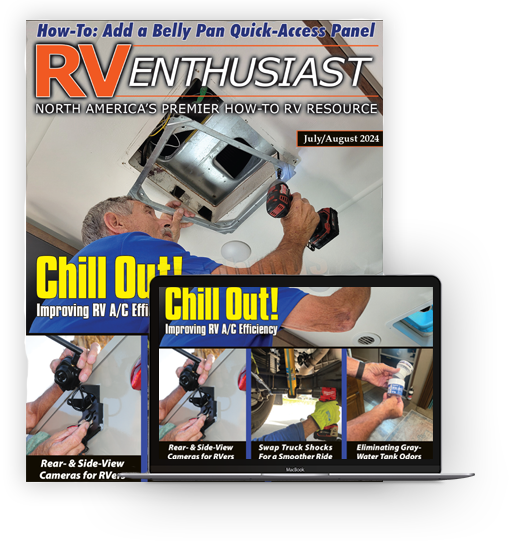Water World
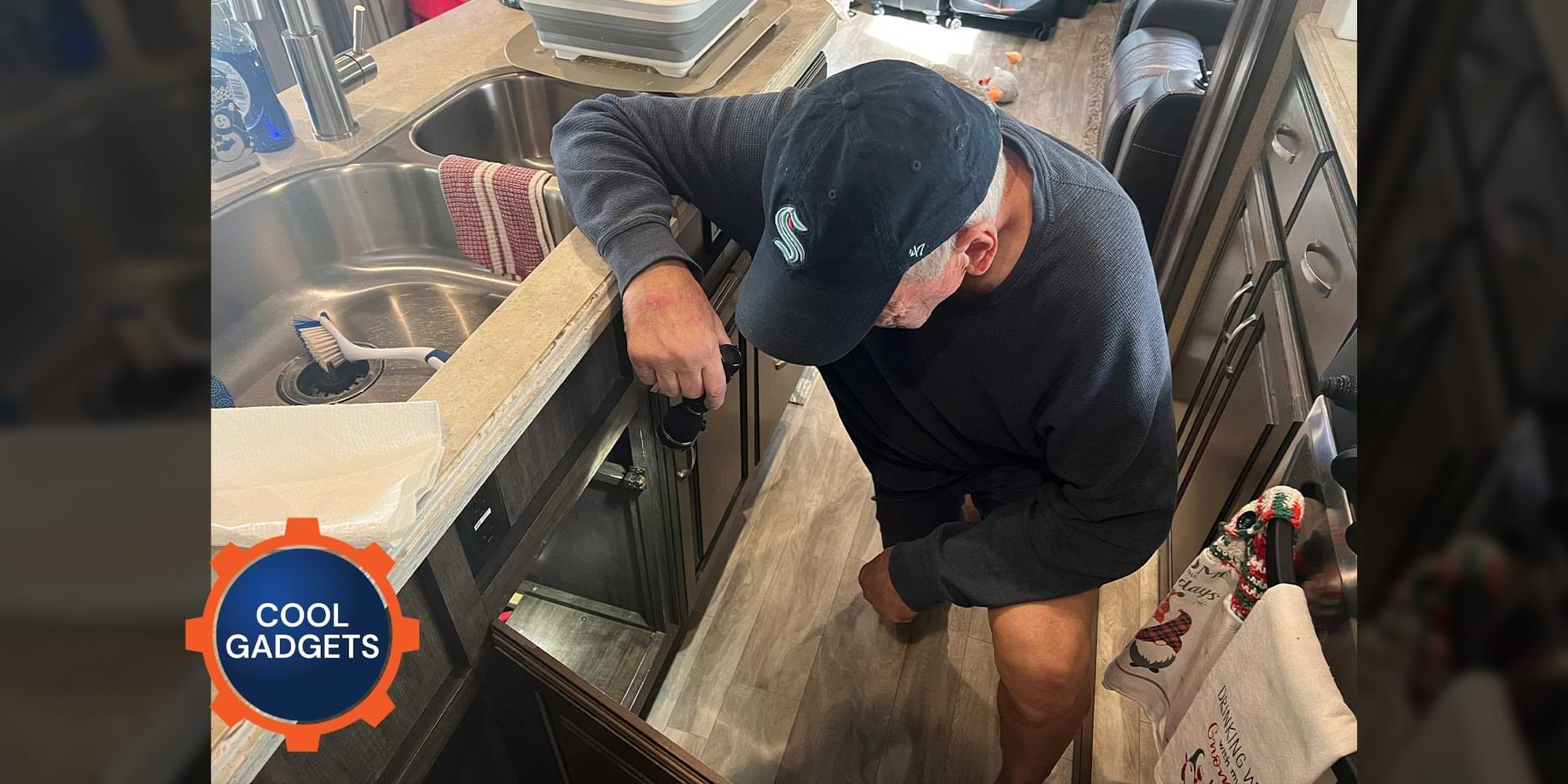
You can prevent an expensive clean-up by taking a proactive stance and installing inexpensive leak detectors that can give you advance warning before things get out of control. Not only is this easy to do, but the cost is peanuts when compared to potential repair bills.
There’s a proliferation of such devices on the market — they’re well-known among folks who have owned a brick-and-mortar house with a basement prone to flooding — and if you search the Internet, the choices are extensive. My guess is that most will do the job, but when a friend praised the performance of the Govee water sensors he has used for some time, that’s all I needed to make a good choice. It’s all about experience with products and reviews these days.
The Govee H5054 sensors can be purchased on Amazon ($12.99 each or in packs of five for $49.99). For protecting an RV, five is a minimum number. These sensors are small and inconspicuous — just 1.77 x 1.04 x 3.46 inches in size — and are self-contained. Running on two AAA batteries, they are capable of sensing water on flat surfaces via two groups of built-in probes on the backside or will alert to dripping water when the moisture hits one group of probes on the front of the device. A low battery alert is also provided.
When water is detected, a loud (100 db) alarm can be heard from anywhere inside the RV and on an RV-park site. A red light also signifies the leak. For those who would like to be informed offsite, there’s an optional Wi-Fi component that will send messages via email to your phone or tablet. It works on 2.4G Wi-Fi and not on 5.0G versions, so check your system to make sure it’s compatible.
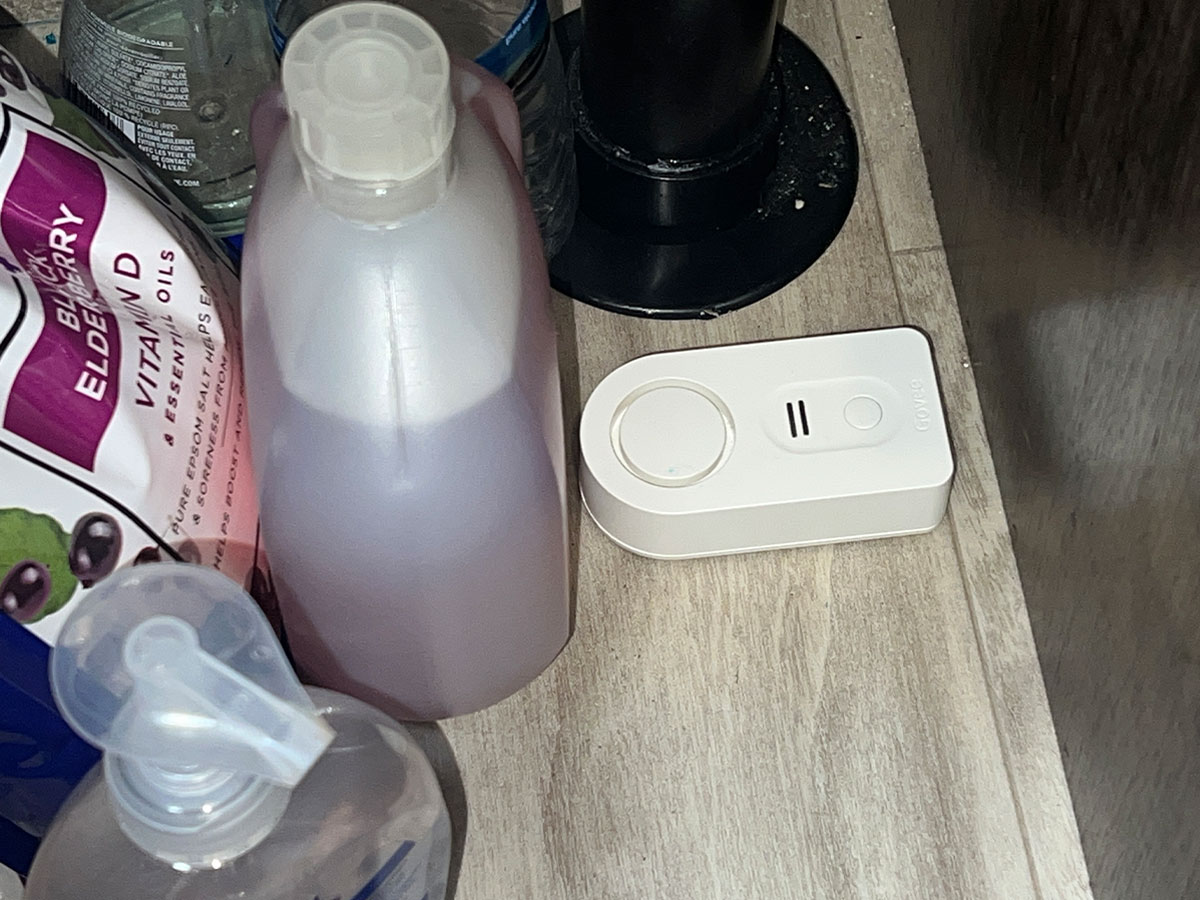
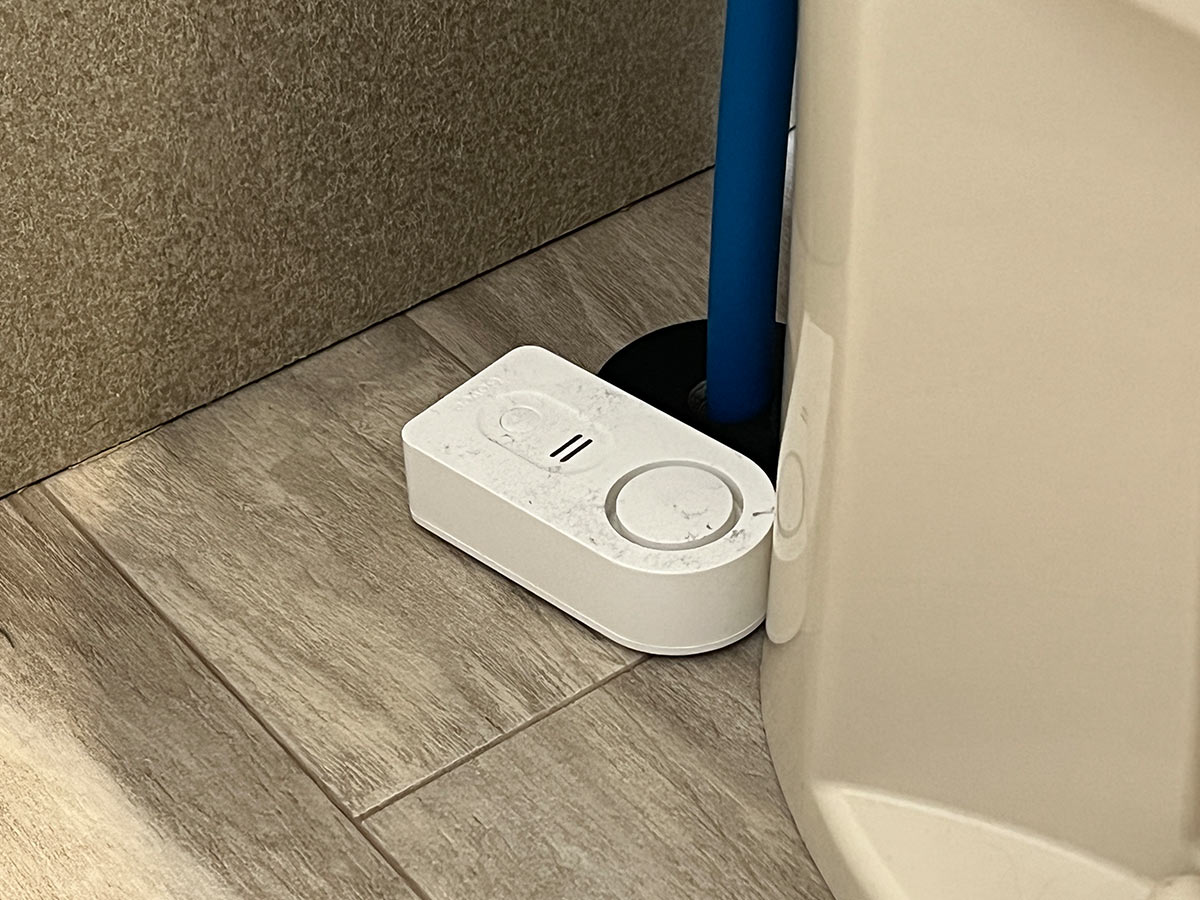
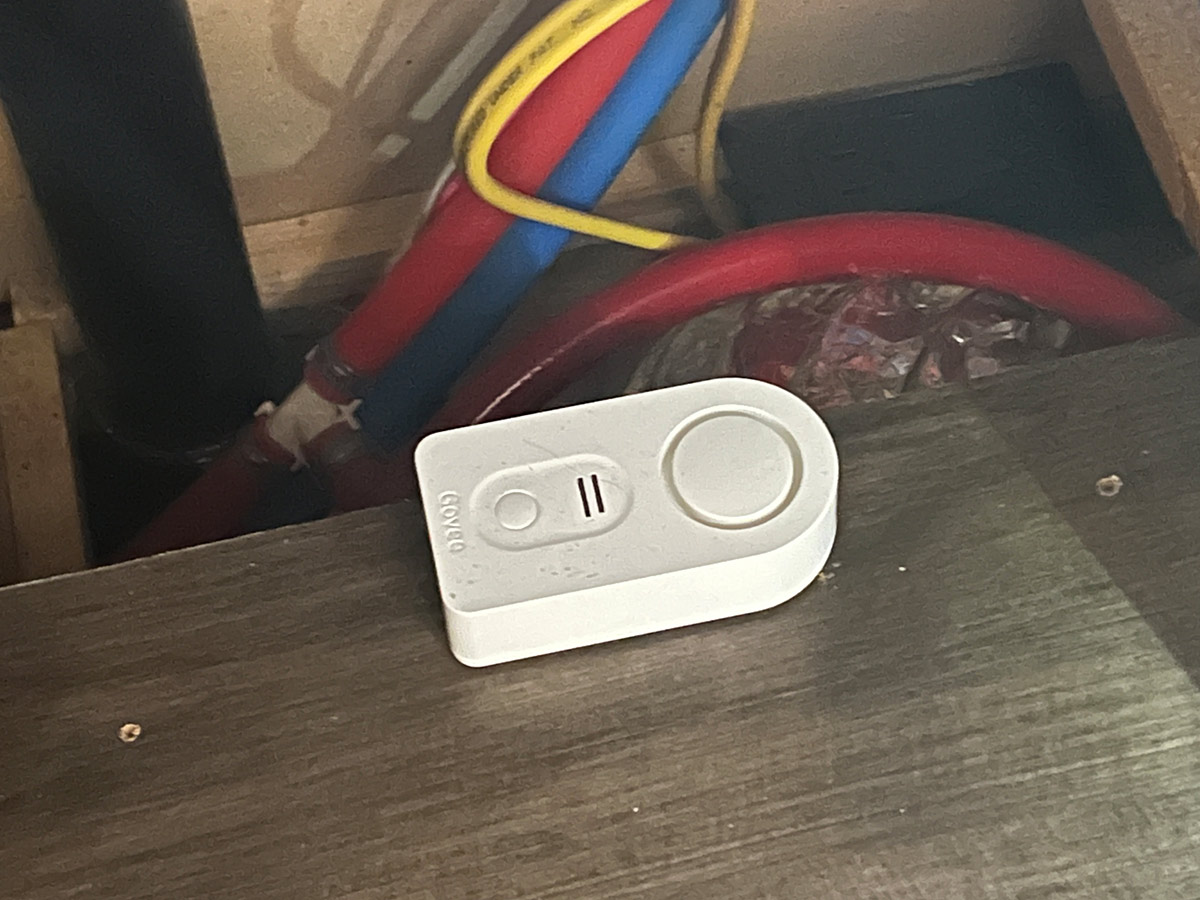
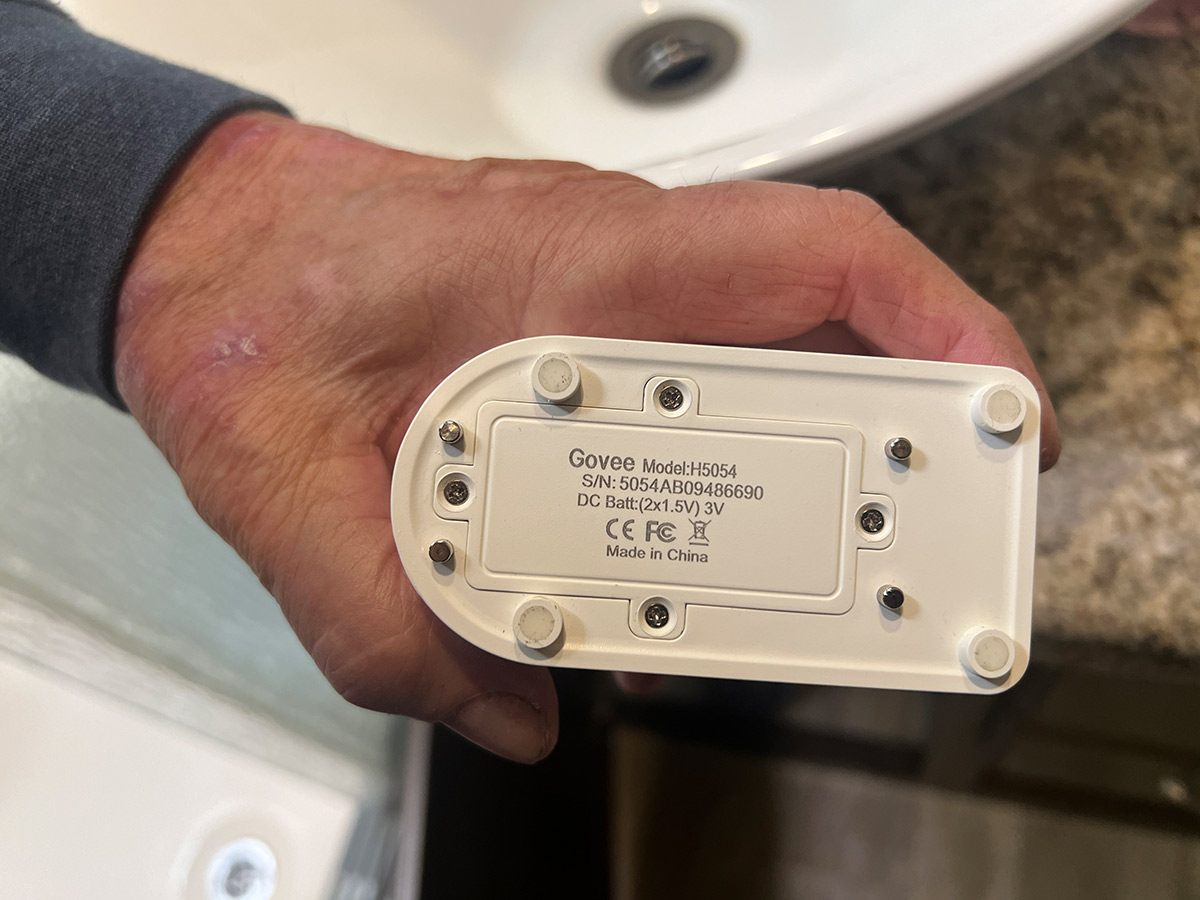
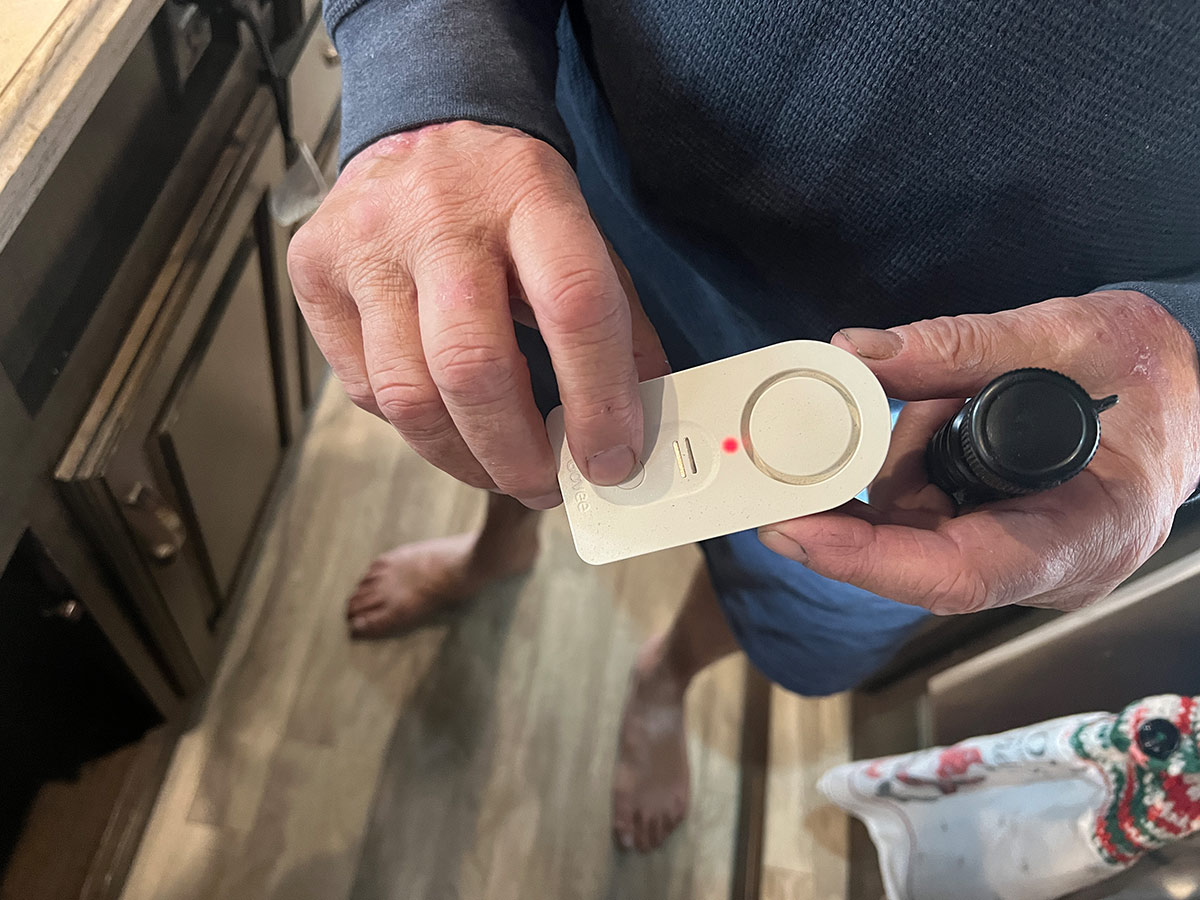
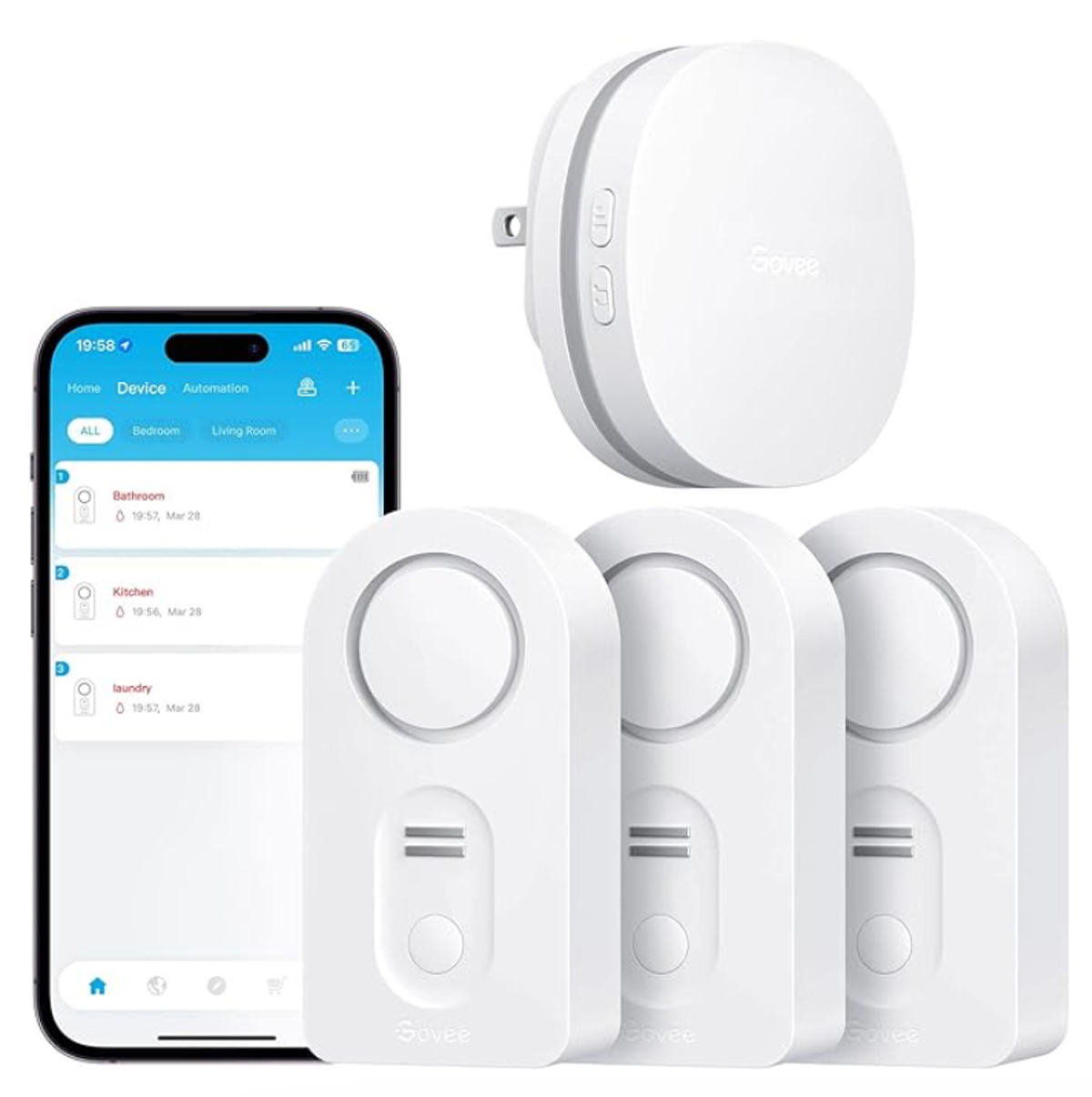
These sensors can be placed anywhere there’s a potential for moisture. For example, logical locations to monitor are under the bathroom and kitchen sinks, behind the toilet, next to the demand water pump, inside storage compartments and in a utility bay. And the sensors are very sensitive — one even went off when the floor was washed a few minutes before returning the sensor to its previous location. If it does sound an alarm, dry the sensors with a towel and press the mute button and you’re ready to be protected again.
Most RV owners have experienced some type of leak. If unwanted moisture is detected in time, the leak can be repaired quickly, clean-up time is reduced to almost nothing — and a potential disaster can be averted. That’s asking a lot of a small investment in simple components, but it works.
Already a Subscriber? Click here for Access to the Full Issues.

